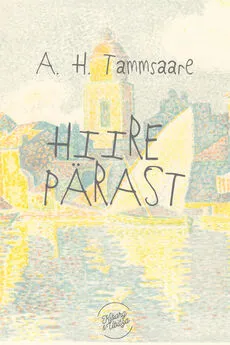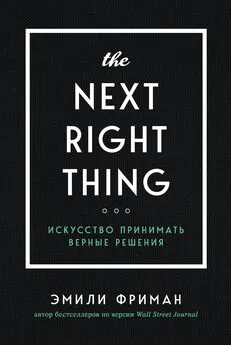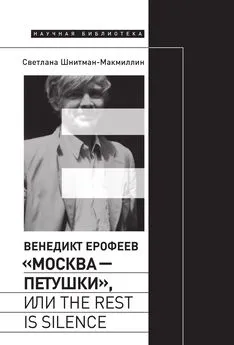W. Ainsworth - Rookwood
- Название:Rookwood
- Автор:
- Жанр:
- Издательство:неизвестно
- Год:неизвестен
- ISBN:нет данных
- Рейтинг:
- Избранное:Добавить в избранное
-
Отзывы:
-
Ваша оценка:
W. Ainsworth - Rookwood краткое содержание
Rookwood - читать онлайн бесплатно полную версию (весь текст целиком)
Интервал:
Закладка:
"And are they shadows; and is this the reality, dear Luke? Question your secret soul, and you will find it otherwise. You could not forego your triumph; it is not likely. You have dwelt too much upon the proud title which will be yours to yield it to another, when it may be won so easily. And, above all, when your mother's reputation, and your own stained name, may be cleared by one word, breathed aloud, would you fail to utter it? No, dear Luke, I read your heart; you would not."
"And if I could not forego this, wherefore is it that you refuse to be a sharer in my triumph? Why will you render my honours valueless when I have acquired them? You love me not."
"Not love you, Luke?"
"Approve it, then."
"I do approve it. Bear witness the sacrifice I am about to make of all my hopes, at the shrine of my idolatry to you. Bear witness the agony of this hour. Bear witness the horror of the avowal, that I never can be yours. As Luke Bradley, I would joyfully—oh, how joyfully!—have been your bride. As Sir Luke Rookwood"—and she shuddered as she pronounced the name—"I never can be so."
"Then, by Heaven! Luke Bradley will I remain. But wherefore—wherefore not as Sir Luke Rookwood?"
"Because," replied Sybil, with reluctance—"because I am no longer your equal. The gipsy's low-born daughter is no mate for Sir Luke Rookwood. Love cannot blind me, dear Luke. It cannot make me other than I am; it cannot exalt me in my own esteem, nor in that of the world, with which you, alas! too soon will mingle, and which will regard even me as—no matter what!—it shall not scorn me as your bride. I will not bring shame and reproach upon you. Oh! if, for me, dear Luke, the proud ones of the earth were to treat you with contumely, this heart would break with agony. For myself, I have pride sufficient—perchance too much. Perchance 'tis pride that actuates me now. I know not. But for you I am all weakness. As you were heretofore, I would have been to you the tenderest and truest wife that ever breathed; as you are now—"
"Hear me, Sybil."
"Hear me out, dear Luke. One other motive there is that determines my present conduct, which, were all else surmounted, would in itself suffice. Ask me not what that is. I cannot explain it. For your own sake, I implore you, be satisfied with my refusal."
"What a destiny is mine!" exclaimed Luke, striking his forehead with his clenched hand. "No choice is left me. Either way I destroy my own happiness. On the one hand stands love—on the other ambition; yet neither will conjoin."
"Pursue, then, ambition," said Sybil, energetically, "if you can hesitate. Forget that I have ever existed; forget you have ever loved; forget that such a passion dwells within the human heart, and you may still be happy, though you are great."
"And do you deem," replied Luke, with frantic impatience, "that I can accomplish this; that I can forget that I have loved you; that I can forget you? Cost what it will, the effort shall be made. Yet by our former love, I charge you tell me what has wrought this change in you? Why do you now refuse me?"
"I have said you are Sir Luke Rookwood," returned Sybil, with painful emotion. "Does that name import nothing?"
"Imports it aught of ill?"
"To me, everything of ill. It is a fated house. Its line are all predestined."
"To what?" demanded Luke.
"To murder !" replied Sybil, with solemn emphasis. "To the murder of their wives. Forgive me, Luke, if I have dared to utter this. Yourself compelled me to it."
Amazement, horror, wrath, kept Luke silent for a few moments. Starting to his feet, he cried:
"And can you suspect me of a crime so foul? Think you, because I shall assume the name, that I shall put on the nature likewise of my race? Do you believe me capable of aught so horrible?"
"Oh, no, I believe it not. I am sure you would not do it. Your soul would reject with horror such a deed. But if Fate should guide your hand, if the avenging spirit of your murdered ancestress should point the steel, you could not shun it then."
"In Heaven's name! to what do you allude?"
"To a tradition of your house," replied Sybil. "Listen to me, and you shall hear the legend." And with a pathos that produced a thrilling effect upon Luke, she sang the following ballad:
THE LEGEND OF THE LADY OF ROOKWOOD
Grim Ranulph home hath at midnight come, from the long Wars of the Roses,
And the squire, who waits at his ancient gates, a secret dark discloses;
To that varlet's words no response accords his lord, but his visage stern
Grows ghastly white in the wan moonlight, and his eyes like the lean wolf's burn.
To his lady's bower, at that lonesome hour, unannounced, is Sir Ranulph gone;
Through the dim corridor, through the hidden door, he glides—she is all alone!
Full of holy zeal doth his young dame kneel at the meek Madonna's feet,
Her hands are pressed on her gentle breast, and upturned is he aspect sweet.
Beats Ranulph's heart with a joyful start, as he looks on her guiltles face;
And the raging fire of his jealous ire is subdued by the words of grace;
His own name shares her murmured prayers—more freely can he breathe;
But ah! that look! Why doth he pluck his poniard from its sheath?
On a footstool thrown lies a costly gown of saye and of minevere
(A mantle fair for the dainty wear of a migniard cavalier),
And on it flung, to a bracelet hung, a picture meets his eye;
"By my father's head," grim Ranulph said, false wife, thy end draws nigh."
From off its chain hath the fierce knight ta'en that fond and fatal pledge;
His dark eyes blaze, no word he says, thrice gleams his dagger's edge!
Her blood it drinks, and, as she sinks, his victim hears his cry,
"For kiss impure of paramour, adult'ress, dost thou die!"
Silent he stood, with hands embrued in gore, and glance of flame,
As thus her plaint, in accents faint, made his ill-fated dame:
"Kind Heaven can tell, that all too well, I've loved thee, cruel lord;
But now with hate commensurate, assassin, thou'rt abhorred.
"I've loved thee long, through doubt and wrong; I've loved thee and no other;
And my love was pure for my paramour, for alas! he was my brother!
The Red, Red Rose, on thy banner glows, on his pennon gleams the White,
And the bitter feud, that ye both have rued, forbids ye to unite.
"My bower he sought, what time he thought thy jealous vassals slept,
Of joy we dreamed, and never deemed that watch those vassals kept.
An hour flew by, too speedily!—that picture was his boon:
Ah! little thrift to me that gift: he left me all too soon!
"Wo worth the hour! dark fates did lower, when our hands were first united,
For my heart's firm truth, 'mid tears and ruth, with death hast thou requited:
In prayer sincere, full many a year of my wretched life I've spent;
But to hell's control would I give my soul, to work thy chastisement!"
These wild words said, low drooped her head, and Ranulph's life-blood froze,
For the earth did gape, as an awful shape from out its depths arose:
"Thy prayer is heard, Hell hath concurred," cried the fiend, "thy soul is mine!
Like fate may dread each dame shall wed with Ranulph or his line!"
Within the tomb to await her doom is that hapless lady sleeping,
And another bride by Ranulph's side through the livelong night is weeping.
This dame declines—a third repines, and fades, like the rest away;
Her lot she rues, whom a Rookwood woos— cursed is her Wedding Day!
"And this is the legend of my ancestress?" said Luke, as Sybil's strains were ended.
"It is," replied she.
"An idle tale," observed Luke, moodily.
"Not so," answered Sybil. "Has not the curse of blood clung to all your line? Has it not attached to your father—to Sir Reginald—Sir Ralph—Sir Ranulph—to all? Which of them has escaped it? And when I tell you this, dear Luke; when I find you bear the name of this accursed race, can you wonder if I shudder at adding to the list of the victims of that ruthless spirit, and that I tremble for you? I would die for you willingly—but not by your hand. I would not that my blood, which I would now pour out for you as freely as water, should rise up in judgment against you. For myself I have no fears—for you , a thousand. My mother, upon her deathbed, told me I should never be yours. I believed her not, for I was happy then. She said that we never should be united; or, if united—"
"What, in Heaven's name?"
"That you would be my destroyer; that your love should turn to hatred; that you would slay me. How could I credit her words then? How can I doubt them now, when I find you are a Rookwood? And think not, dear Luke, that I am ruled by selfish fears in this resolution. To renounce you may cost me my life; but the deed will be my own. You may call me superstitious, credulous; I have been nurtured in credulity. It is the faith of my fathers. There are those, methinks, who have an insight into futurity; and such boding words have been spoken, that, be they true or false, I will not risk their fulfilment in my person. I may be credulous; I may be weak; I may be erring; but I am steadfast in this. Bid me perish at your feet, and I will do it. I will not be your Fate. I will not be the wretched instrument of your perdition. I will love, worship, watch, serve, perish for you—but I will not wed you."
Exhausted by the vehemence of her emotion, she would have sunk upon the ground, had not Luke caught her in his arms. Pressing her to his bosom, he renewed his passionate protestations. Every argument was unavailing. Sybil appeared inflexible.
"You love me as you have ever loved me?" said she, at length.
"A thousand-fold more fervently," replied Luke; "put it to the test."
"How if I dared to do so? Consider well: I may ask too much."
"Name it. If it be not to surrender you, by my mother's body I will obey you."
"I would propose an oath."
"Ha!"
"A solemn, binding oath, that, if you wed me not, you will not wed another. Ha! do you start? Have I appalled you?"
"I start? I will take it. Hear me—by—"
"Hold!" exclaimed a voice behind them. "Do not forswear yourself." And immediately afterwards the sexton made his appearance. There was a malignant smile upon his countenance. The lovers started at the ominous interruption.
"Begone!" cried Luke.
"Take not that oath," said Peter, "and I leave you. Remember the counsel I gave you on our way hither."
"What counsel did he give you, Luke?" enquired Sybil, eagerly, of her lover.
"We spoke of you, fond girl," replied Peter. "I cautioned him against the match. I knew not your sentiments, or I had spared myself the trouble. You have judged wisely. Were he to wed you, ill would come of it. But he must wed another."
"MUST!" cried Sybil, her eyes absolutely emitting sparkles of indignation from their night-like depths; and, unsheathing as she spoke the short poniard which she wore at her girdle, she rushed towards Peter, raising her hand to strike.
" Must wed another! And dare you counsel this?"
"Put up your dagger, fair maiden," said Peter, calmly. "Had I been younger, your eyes might have had more terrors for me than your weapon; as it is, I am proof against both. You would not strike an old man like myself, and of your lover's kin?"
Sybil's uplifted hand fell to her side.
"'Tis true," continued the sexton, "I dared to give him this advice; and when you have heard me out, you will not, I am persuaded, think me so unreasonable as, at first, I may appear to be. I have been an unseen listener to your converse; not that I desire to pry into your secrets, far from it; I overheard you by accident. I applaud your resolution; but if you are inclined to sacrifice all for your lover's weal, do not let the work be incomplete. Bind him not by oaths which he will regard as spiders' webs, to be burst through at pleasure. You see, as well as I do, that he is bent on being lord of Rookwood; and, in truth, to an aspiring mind, such a desire is natural, is praiseworthy. It will be pleasant, as well as honourable, to efface the stain cast upon his birth. It will be an act of filial duty in him to restore his mother's good name; and I, her father, laud his anxiety on that score; though, to speak truth, fair maid, I am not so rigid as your nice moralists in my view of human nature, and can allow a latitude to love, which their nicer scruples will not admit. It will be a proud thing to triumph over his implacable foe; and this he may accomplish—"
Читать дальшеИнтервал:
Закладка:




![Rakot - Апостол Новой Веры. Том 1 [СИ]](/books/1061842/rakot-apostol-novoj-very-tom-1-si.webp)
![Rakot - Укуренный мир. Том 3 [СИ]](/books/1073038/rakot-ukurennyj-mir-tom-3-si.webp)




